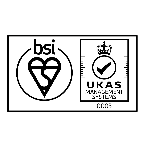
Significant Changes to Employment Law
This April, new employment laws will force businesses to alter how they work. With increases to the National Living and Minimum Wage, significant changes to payslip rules, and larger pension contributions due to take effect, businesses must prepare now to be ready in time.
Croner – LEEA’s trusted employment law partner – explain the legal changes you need to know about below.
If you have any questions concerning these changes, or any wider HR queries, call your dedicated LEEA member support helpline on 0844 561 8133, quoting membership number 82754.
1st April: National Living Wage Increases
The National Living Wage and National Minimum Wage go up by 4.9% for all age groups.
- £8.21 per hour for workers aged 25 and over (up from £7.83).
- £7.70 per hour for workers aged 21 to 24 (up from £7.38).
- £6.15 per hour for workers aged 18 to 20 (up from £5.90).
- £4.35 per hour for workers aged under 18 (up from £4.20).
- £3.90 per hour for apprentices (up from £3.70).
Last year, the government named and shamed 419 businesses guilty of paying below the National Minimum Wage, and forced them to pay out £2.54 million.
To avoid an unwelcome letter from HMRC and a potentially tainted reputation, you should take the time to update your payroll well in advance of April’s changes. Remember to check that any pay deductions for uniforms or equipment don’t tip your staff below the National Minimum Wage.
4th April: Businesses must Publish Gender Pay Gap Reports
2018 introduced the first round of gender pay gap reporting. As employers consider how to adjust their approach for the second year of reporting, two main dates must be observed.
Public sector organisations should publish their gender pay gaps by 31st March 2019. For private sector businesses with 250+ staff, findings need to be published by 4th April 2019.
Last year, it was found that businesses paid women on average 8.6% less than men. This year, many hope to see this pay gap reduce. Having said that, the common issues driving current pay gaps may require a longer term view.
To understand your reporting requirements, or for assistance in putting a report together, call our LEEA member support line.
5th April: Consultation closes on Redundancy Protection for Pregnant Employees
The practical application of this proposed change will have a significant impact on all businesses should it come into force.
Under the proposed change, a woman would get protection from redundancy from the point that she informs her employer she is pregnant until six months after her maternity leave. It may also apply to adoptive and other parental leave.
6th April: Statutory Sick Pay (SSP) goes up
Currently, the minimum sick pay rate per week is £92.05. As of early April, this will increase to £94.25.
You must pay your worker sick pay if they have been too ill to work for four days or more, and you need to pay it for up to 28 weeks.
6th April: Pension Contributions increase to 8%
The minimum contributions you and your staff pay into your automatic enrolment workplace pension scheme will increase from 6 April 2019.
As of this date, your employee needs to put at least 5% of their pre-tax salary into their pension, and you have to put in 3%.
6th April: Changes to Payslips
Previously, only your staff classed as employees needed to get written itemised payslips. You didn’t need to itemise payslips for any staff classed as ‘workers’.
Now the law has changed. As of April 2019, you’ll need to give itemised payslips to your employees and your workers. If you don’t, you’ll be breaking the law.
7th April: Statutory Pay for Maternity, Paternity, Adoption and Shared Parental Leave Increases
The minimum pay you need to give staff on maternity, paternity, adoption or shared parental leave increases from £145.18 to £148.68 per week.
The average earnings that an employee has to make to receive these payments also increases from £116 to £118 per week.
Expert Advice
With monumental employment law changes only a couple of months away, it’s important to identify and action the preparations you need to put in place.
Call the LEEA member support helpline on 0844 561 8133 and quote membership number 82754 to speak to an employment law advisor today.



